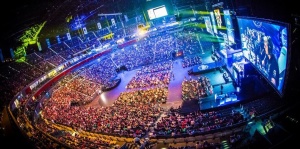eSports betting has come under the scrutiny of the UK Gambling Commission, who listed it as an area for continuing future focus in its 2015/2016 annual report. eSports are becoming increasingly popular and as such, more people are wagering on the outcome of the matches of varies video games. The UK Gambling Commission already includes eSports betting in its licenses but has expressed some concern with the growing market.
What exactly is eSports?
Video games have become incredibly popular in recent years and it may surprise you that some people actually play video games professionally. These are the best players in the world who compete against each other in official tournaments. The prize money for winning one of these tournaments can be quite significant, which attracts players from all over the world.
These gaming competitions have become increasingly popular for spectators and have even started featuring on mainstream television sports channels like ESPN. This has obviously led to people who have started to bet on the outcome of these games, just as you would on any other sport.
The problem with eSports
The eSports betting industry currently generates around £460 million per year; this is expected to grow by over £7.5 billion over the course of the next four years. This means that the UK Gambling Commission has to make sure that match fixes do not occur and the results are fair.
The other issue is that eSports gambling blurs the line between social gaming and gambling. This was recently brought to light by a game called Counter-Strike: Global Offensive, where players could gamble their rare in-game items. Some of these could be worth thousands of pounds and people as young as 13 could take part. Value, the company that developed and distributed Counter-Strike, has made efforts to shut down this item trading until something can be done to ensure minors are not exposed.
There are also several new quasi-governing bodies that have emerged recently to keep an eye on how things proceed in the world of eSports gambling, all of which will probably step in and help the UK Gambling Commission understand exactly what is going on.









